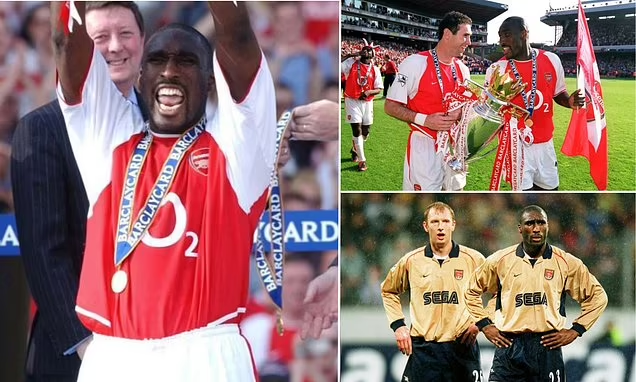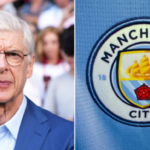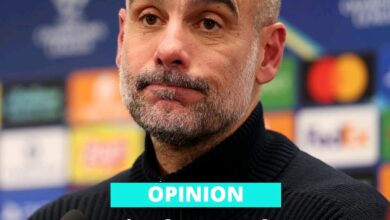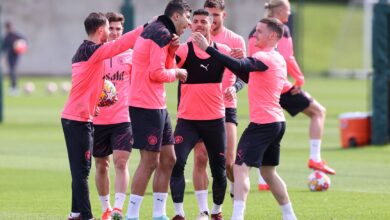Arsene wenger on Liverpool after match loss

I drew on recent reporting for the main claims — Wenger tipping Liverpool as favourites and saying he was “praying” for a slip-up, Wenger arguing Klopp should not decide his replacement, his comments on Liverpool’s unbeaten run vs Arsenal’s “Invincibles”, and his praise for Mohamed Salah — which have been reported in outlets such as Yahoo Sports, beIN Sports coverage, OneFootball and related reports.
Before you put your scarf back on and walk away shaking your head, stop and think about how strange football is. One minute a manager is a hero who lifts trophies and turns a city into a party. The next minute, critics are whispering, commentators are asking hard questions, and the papers are already writing the obituaries for a season that may not even be half over. That is the mood around the top of English football right now — and it is exactly why a voice like Arsène Wenger’s matters. He has walked the high line of title races, he understands how the game eats managers and legends, and when he speaks about Liverpool now, people listen
Wenger is not a man who trades in cheap shots. He speaks carefully, shaped by a long life inside football. So when he calls Liverpool “super favourites” to win the league this season, that phrase does not come from hot air. It comes from observation. Liverpool have looked strong and consistent; they have the clarity of purpose that wins long campaigns. Wenger’s point is simple: some teams do not just have talent — they have rhythm and a plan. And that can carry you a long way in a 38-game season.
But Wenger is also a realist — and a man with a sense of mischief for his old club. He admitted, with a smile and a wink the press could not miss, that he was “praying” for a Liverpool slip-up. That line was playful, but honest. It said two things at once. First: Wenger believes Liverpool are the side to beat this season. Second: he still loves Arsenal and wishes them every chance to close the gap. So yes — his prayers are for Arsenal’s chance, not for Liverpool’s downfall. That subtle mix of respect and rivalry is what makes his commentary so sharp.
There is another layer to Wenger’s comments that deserves attention. He has always cared about how clubs are run, not just who stands on the touchline. When Jürgen Klopp announced his departure, Wenger said something that revealed his way of thinking about institutions. He argued that when a manager’s time is done, the club’s other leaders must take responsibility for the next step. In short: Klopp should not be asked to pick his successor. Ideas matter, Wenger seemed to say, but the responsibility of choosing a new path must rest with the organization itself. He framed it as a matter of order and clear lines of duty. People should do their jobs — the outgoing manager should manage his leaving, while the board and directors should handle recruitment and replacement.
That thought — that institutions must be trusted to make big calls — is a quiet rebuke of a common habit in modern football. Too often, a departing manager is asked to name his replacement, or influential figures lobby for favours, and decisions blur. Wenger’s view is simple: mixing roles muddies responsibility. If problems come later, who is accountable? His answer is blunt: keep things separate. The outgoing hero exits; the club’s people in charge then make the next call. Simple. Clean. Professional.
There is also the memory of Wenger’s own era that underpins his views. He led Arsenal through long seasons, some glorious, some painfully close. He remembers the uniqueness of Arsenal’s unbeaten season in 2003–04 — the famous “Invincibles” — and he has never hidden the pride that achievement brought. So when Liverpool came close in later years to matching that rare feat, Wenger admitted a little private pleasure when their run finally ended. That admission was half a joke, half the honest confession of a man who knows how special such records are and how hard they are to repeat. But he also praised Liverpool’s consistency and quality in the seasons that followed, pointing out that their long unbeaten runs were the product of remarkable discipline and high performance. Praise and a tiny smile of satisfaction — that was Wenger’s tone.
Wenger’s reflections are not just nostalgia and rivalry. They are also a way to point at what makes a champion: steadiness. Seasons are marathons, not sprints. A team that can keep its shape, recover from bad days, and maintain belief — that is the side that often wins. Wenger knows it from experience: an unbeaten run is not magic, it is consistency multiplied by focus and management. And he gave Liverpool credit when it was due.
Then there is Mohamed Salah — a player Wenger singled out as his “favourite non-Arsenal player.” When a coach who once masterminded the careers of Thierry Henry and Dennis Bergkamp points to Salah, he underlines something many already suspected: Salah is not just fast and tricky; he is consistent, intelligent, and plays with a style that blends speed and technique in a way that fits modern football. Wenger’s admiration for Salah is a nod to pure footballing excellence, irrespective of club loyalties. In the game’s daily chess, Salah has become a piece that the best coaches must constantly account for.
Wenger’s combination of respect, rivalry, and clear-sightedness creates a voice that walks both sides of the line. He can wish Arsenal well while admiring Liverpool. He can say Liverpool are favourites yet still hope for an Arsenal miracle. It is precisely this balance that makes his words worth repeating. They are not motivated solely by loyalty or spite; they come from a long view.
So why does this matter right now? Because Liverpool and Arsenal are locked into a title story that is about more than goals and wins. It is also about identity, leadership, and the way clubs manage transitions. Klopp’s exit, for example, was the end of a chapter written in roar and outrage, joy and tears. He became a symbol at Liverpool. Replacing a figure like him is not simply a football decision — it is about the future temperament of the club. Wenger’s warning that Klopp should not pick his replacement is less about timing and more about safeguarding the club’s autonomy. He fears the confusion that arises when one person’s personal preference becomes institutional policy. And he knows that managers, by nature, are not neutral about who follows them. So the choice, he believes, belongs to those whose job it is to balance the present with the future.
This is where club structures matter. A football club that plans, that has processes, and that can withstand the pressure of fans and celebrities is better placed to make long-term decisions. Wenger’s whole career taught him the value of steady hands in recruitment, youth development, and strategic planning. He built teams slowly, sometimes painfully, but usually with an eye for what would last. That is the counterpoint to the modern habit of quick hires and instant fixes.
And that brings us back to how Wenger sees the league battle. When he says Liverpool are “super favourites,” he is not trying to be dramatic. He is observing the facts: the team looks coherent, they have a game plan, and they have shown the ability to win over a long season. But he is also a realist who knows that football is not decided on paper. A run of injuries, a dip in confidence, or one bad spell can change everything — which is why he joked about praying for a slip-up. It was a wry reminder that even the best teams must be watched, and a gentle piece of encouragement for Arsenal fans.
Wenger’s voice also helps underline another truth of the modern game: the fine line between admiration and envy. When a rival achieves something great — a long unbeaten run, a title, or a player in world form — those who saw it closely can admire and also feel slight pain. Wenger’s admission that he felt a little satisfaction when Liverpool’s near-Invincibles run ended tells you how much those records mean to those who achieved them first. It is not meanness; it is the pride of a craftsman who knows what it takes to do something exceptional
Look deeper and you see another pattern in Wenger’s thinking: the belief that clubs must not confuse hero worship with governance. When a manager leaves an indelible mark, the risk is that their influence lingers in ways that cloud the judgment of those who must replace them. Wenger’s point about Klopp is a practical one. It is easier to make coherent choices when the people tasked with charting the club’s future are free to do so without the shadow of the immediate past dictating terms.
This is not to say Wenger dislikes Klopp or that he thinks Klopp did wrong. Far from it. Wenger respects Klopp. He admires managers who build identity and connection. But he is pleading for an institutional clarity that protects clubs from the fuzziness of emotions in big decisions.
And there is a final piece to the puzzle: players. Wenger sees Salah not just as a name but as proof that the best players force new thinking in opponents and coaches. A player of real quality changes games and even seasons. Salah’s blend of speed, precision, and intelligence offers Liverpool a platform that is hard to dismantle. Wenger’s praise for Salah recognizes how influential the right player can be — not only in goals and assists but in the way he makes the team think differently about attack and defense.
In the end, Wenger’s words are an invitation to look at football with a wider frame. He combines a fan’s love with a manager’s sense of duty. He offers rivalry without spite, advice without arrogance, and historical memory without bitterness. He wants the game to be managed well — and he wants clubs to guard against sloppy choices that arise from emotion. He also loves a good title race. That is why he can call Liverpool “super favourites” and still say, with a smile, that he secretly prays for their slip. It is the human mixture that makes football both intense and humane.
There is one more thing to say. Wenger’s comments, taken together, make a sort of blueprint for success in modern football. Respect the institution. Reward consistency. Keep decision-making clear. Value great players, but never let hero worship replace corporate care. When clubs follow those rules, they are more likely to be steady, successful, and remembered for their achievements rather than their mistakes.
Right now, Liverpool look strong. Arsenal still hope. Klopp’s exit leaves questions. Salah’s brilliance lights the way. And Wenger, from his place as a wise elder of the game, watches and speaks with a voice both clear and wry. He says what he sees — and he reminds us all that football is as much about how institutions behave as it is about what happens on the pitch.
So, whether you are an Arsenal fan nodding along at the idea of a slip, a Liverpool supporter smiling at the compliment, or a neutral who loves the drama, take Wenger’s words seriously. They are not idle gossip. They are the thought of a man who has stood in the middle of title races, held trophies, and seen what breaks teams and what makes them last. In a season that will be remembered for many small details, his call for order, respect, and careful thinking might be one of the most important plays off the fiel-















